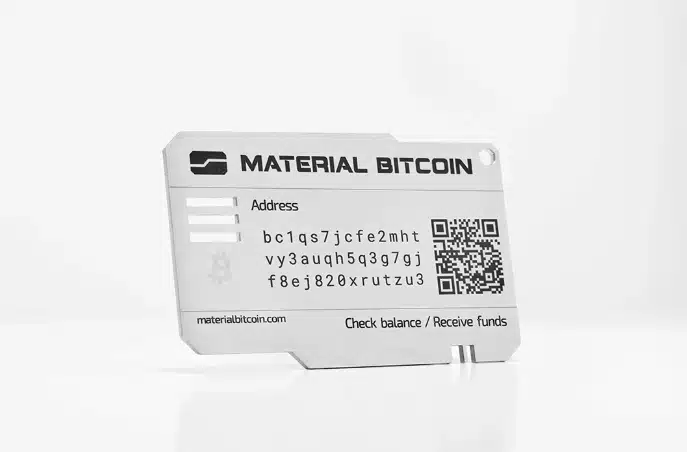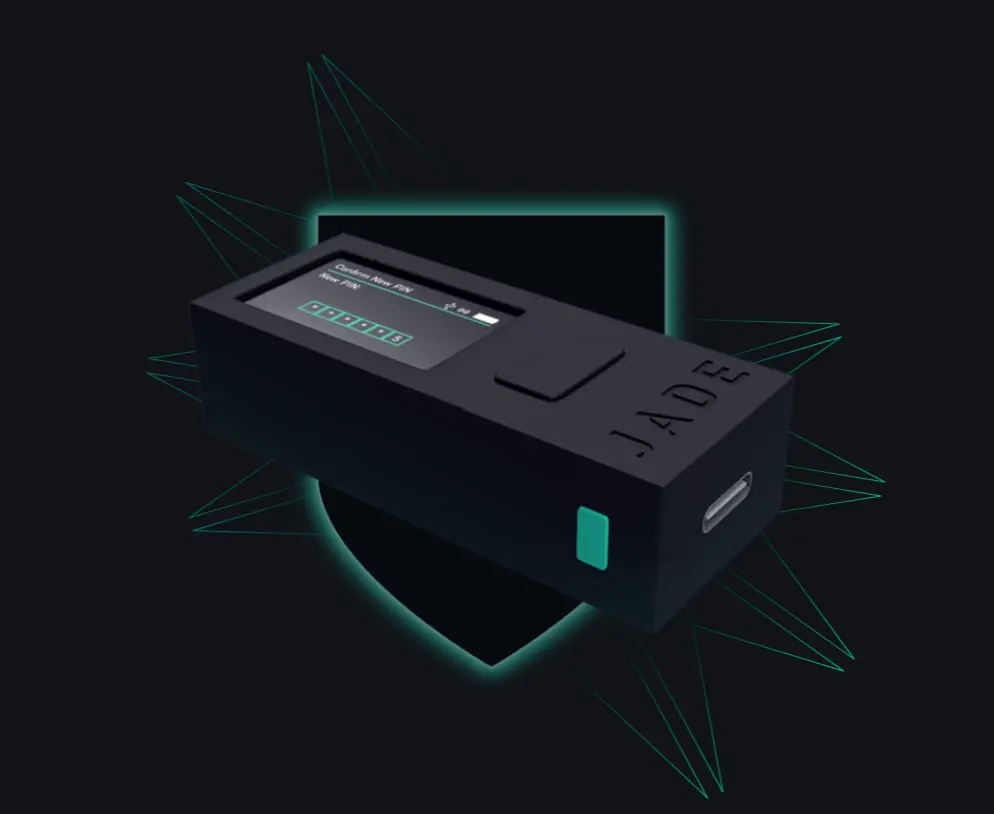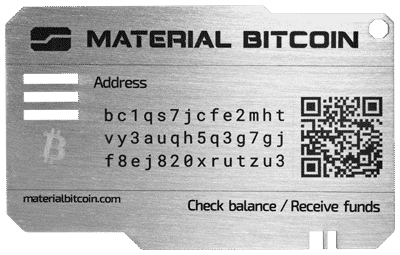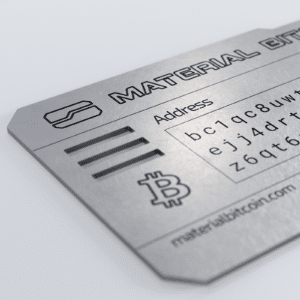Did you know that in the last few years, billions of dollars worth of crypto have been lost due to hacks, scams, and security breaches?
Cryptocurrency is continuously reshaping our concept of finance as a global whole.
It gives us the option of decentralization, self-custodial protection, and also leverage as a high-return investment.
More people and institutions are adopting crypto, from Bitcoin and Ethereum to innovative altcoins and DeFi apps.
But here’s the catch: Different from traditional banks, crypto’s decentralized system means that there is no central authority to report issues or theft.
You are responsible for your own assets and its safety.
This is where knowing the safest place to hold crypto comes into play.
Understanding how to store your digital assets securely is vital for safeguarding your investments against cyber threats and scams.
Why Is Secure Crypto Storage Important?
Crypto theft is a big issue and since you are the one in charge of protecting your digital assets, it is essential to store your crypto safely.
There are different ways of storing your crypto on different platforms. To fully understand the risks of each, here are some frequent threats you should be aware of:
Hacking
Online criminals are constantly finding new ways to exploit vulnerabilities. From online wallets to exchanges, these attacks keep coming in new and innovative ways.
Phishing Attacks
Scammers try to trick you into giving up your private keys or login info through fake websites or emails. They are extremely sophisticated and real-looking, with many individuals falling for their tricks.
Electronic Hardware Failures
If you’re storing your crypto on a physical device like a computer hard drive or USB stick, hardware malfunctions can mean you lose your crypto forever.
Loss of Private Keys
Your private key is your secret access code to your crypto wallet. If you lose it, you lose access to your funds forever.
Malware and Viruses
Corrupt software can attack your devices, giving hackers unauthorized access to your wallets. This can happen to your mobile phone, computer, and subsequently, an electronic hardware wallet.

Short-Term vs. Long-Term Security in Crypto Storage
Knowing the best way to store your crypto should align with your investment strategy.
You need to identify how you interact with your crypto assets to better know where to store them.
Are you a frequent trader who needs constant and immediate access? Or are you a long-term HODLer who wants to securely set your crypto assets and forget about it for the next 10 years?
Keep in mind that your security needs might evolve as you grow your crypto portfolio.
What Are the Different Types of Crypto Wallets
Choosing the right crypto wallet is essential for your investment and your peace of mind. Here’s a breakdown of the different types of wallets and what they can be used for:
Hot Wallets
These are digital storage wallets that are connected to the internet. They are also referred to as software wallets and can be accessed via a web browser, mobile app, or desktop app.
|
| Convenience – Instantly access your crypto from anywhere with an internet connection. |
| Quick Transactions – Ideal for daily trading and quick transfers. |
|
| Online Exposure and Threats – Being online makes them very vulnerable to hacking, phishing, and malware attacks. |
| Security Risks – Since your private keys are stored online, you face an increased chance of theft. |
| Less Control – Some hot wallets are custodial, which means that a third party holds your private keys, not you. |
Cold Wallets
These types of wallets are storage solutions to protect your crypto offline. Cold wallets can be some variations of hardware wallets, and paper wallets.
|
| Enhanced Security – Offline storage of your private keys makes it impossible for online hacking. |
| Self-Custody – You own your private keys, not any other platform or third-party institution. |
| Ideal for Long-Term Storage – Ideal for HODLing large amounts of crypto. |
|
| Cost and Setup – Hardware wallets can be pricier and have a longer setup process. |
| Risk of Physical Loss – If you lose the device and don’t have a cold wallet backup, your funds are gone forever. |
| Hot Wallets vs Cold Wallets | ||
|---|---|---|
| Feature | Hot Wallets | Cold Wallets |
| Security Level | Low to Moderate: Online Vulnerabilities | High: Offline Storage |
| Accessibility | High: Need Internet Connection | Moderate: Physical Access Required |
| Ideal For | Active traders, frequent transactions | Long-term holders, large investments |
| Ease of Use | Very user-friendly, great for beginners | Requires setup, and user responsibility |
| Cost | Generally free | Costs vary ($50-$200 for hardware wallets) |
Safest Ways to Store Your Crypto for the Long-Term
When it comes to long-term crypto storage, cold storage is always your best choice.
Since your private keys are stored offline, away from any internet connection, this drastically reduces the risk of your crypto being stolen.
Best Hardware Wallets for Cryptocurrency
Investing in a reliable hardware wallet is the best solution for securing your crypto long-term.
1️⃣Material Bitcoin
Material Bitcoin is the only true cold storage solution, with no electronic elements connecting to a device or app.
⚙️Features: User-friendly interface, high-security protocols, made of indestructible stainless steel.
🪙Supported Cryptocurrencies: Bitcoin, Ethereum, and USTD (must purchase a specific wallet for each cryptocurrency).
💲Price: Starting at $89.

2️⃣D’cent Biometric Wallet
The D’cent wallet was one of the first biometric hardware wallets available on the market.
⚙️Features: Biometric fingerprint authentication, OLED display, Bluetooth connectivity.
🪙Supported Cryptocurrencies: Bitcoin, Ethereum, ERC-20 tokens, and more.
💲Price: Starting at $119.

3️⃣Blockstream Jade
The Blockstream Jade is a USB-C hardware wallet with an accompanying app.
⚙️Features: Open-source firmware, full-color display, USB-C and Bluetooth connectivity.
🪙Supported Cryptocurrencies: Bitcoin, and Liquid Network assets.
💲Price: Starting at $64.99

To find out more, read our comprehensive guide on the best hardware wallets.
Top Software Wallets for Cryptocurrency
If hardware wallets aren’t your thing, and you still prefer to use a software wallet (even after being informed of its security issues), here are some reputable options:
1️⃣Exodus
⚙️Features: User-friendly interface, built-in exchange, and portfolio tracking options.
🪙Supported Cryptocurrencies: Supports 100+ cryptocurrencies.
🆕Future Updates Expected: Enhanced security features and DeFi integration.
2️⃣Coinbase Wallet
⚙️Features: Easy integration with the Coinbase exchange, and dApp browser.
🪙Supported Cryptocurrencies: Bitcoin, Ethereum, and all ERC-20 tokens.
🆕Future Updates Expected: Expanded support for NFTs and Layer 2 networks.
3️⃣Crypto.com
⚙️Features: Buy/sell/trade options, crypto Visa card rewards, staking.
🪙Supported Cryptocurrencies: 250+ cryptocurrencies.
🆕Future Updates Expected: Improved user interface and additional DeFi services soon to be integrated with the crypto.com app.
How to Choose the Best Wallet for Secure Crypto Storage
Your ideal hardware wallet depends on your experience level and investment goals:

User-friendly hardware wallets like Material Bitcoin are an excellent starting point. Not only does it offer top security, but it also has no setup requirements.

If you require advanced features, consider hardware wallets like NGRAVE ZERO or Tangem Wallet. These devices provide high-security measures suitable for safeguarding your crypto, with advanced features for tech lovers.

The D’Cent Biometric Wallet supports multiple cryptocurrencies, making it ideal for efficiently managing a variety of cryptocurrencies.
Step-by-Step Guide to Storing Crypto Securely
Setting up a hardware wallet is a crucial step in safeguarding your cryptocurrency. Here’s how to do it:
STEP 1. Unbox and Inspect
- Unbox Carefully: Remove your hardware wallet from its packaging. Ensure all parts are present (device, cables, manuals, etc).
- Check for Tampering: Verify that all the security seals are intact and that nothing has been previously opened.
STEP 2. Initial Setup
- Follow Your Devices Setup Instructions: Depending on the wallet you will need to connect to a computer or scan a QR code.
STEP 3. Creating Your Wallet
- Set a PIN
- Store Your Recovery Phrase: Most wallets will generate a seed phrase for recovery. You must store this carefully on a backup metal crypto wallet.
STEP 4. Transferring Cryptocurrency
- Install Wallet Apps: If applicable, install apps for the specific cryptocurrencies you plan to store.
- Receive Funds: Transfer crypto from an exchange or another wallet to your hardware wallet.
Best Practices
Secure Storage of Recovery Phrase: Keep it in a safe, private location—consider a fireproof safe.
Regular Firmware Updates: Update your device’s firmware for the latest security enhancements.
Use Official Accessories: Only use manufacturer-recommended cables and accessories.
Security Measures for Software Wallets
If you prefer software wallets, using strong security practices is a MUST.
✔️Begin by creating unique passwords, using a mix of letters, numbers, and symbols. DO NOT USE COMMON WORDS!
✔️Enable two-factor authentication (2FA).
✔️Regularly update your wallet software and your device’s operating system.
✔️Be cautious and up-to-date with phishing scams and fake apps. Download wallet software only from official sources, check URLs carefully, and never click on suspicious email links.
Securing Your Assets in the Safest Place to Hold Crypto
Storing your crypto in a safe place isn’t just a smart move, in our eyes, it is essential.
We can understand that for some, an online crypto wallet seems sufficient, but as the price of Bitcoin and other coins rises, so does the desire for them.
Hacking and scamming schemes are becoming more frequent as a consequence, so take control with a cold wallet and store your assets in the safest place to hold crypto.
FAQs
Where is the best place to hold Bitcoin?
- In a secure air-gapped hardware wallet like Material Bitcoin, which keeps your private keys offline and safe from online threats.
What is the best cold storage option for Bitcoin?
- The top choices are cold hardware wallets. These devices offer high-level security for long-term storage.
What’s the difference between a secure wallet and an exchange platform?
- A secure wallet gives you self-custody over your private keys and crypto assets. An exchange platform holds your keys for you, which can be riskier if hacked. For maximum security, store your crypto in a self-custodial wallet where you control the keys.










0 Comments